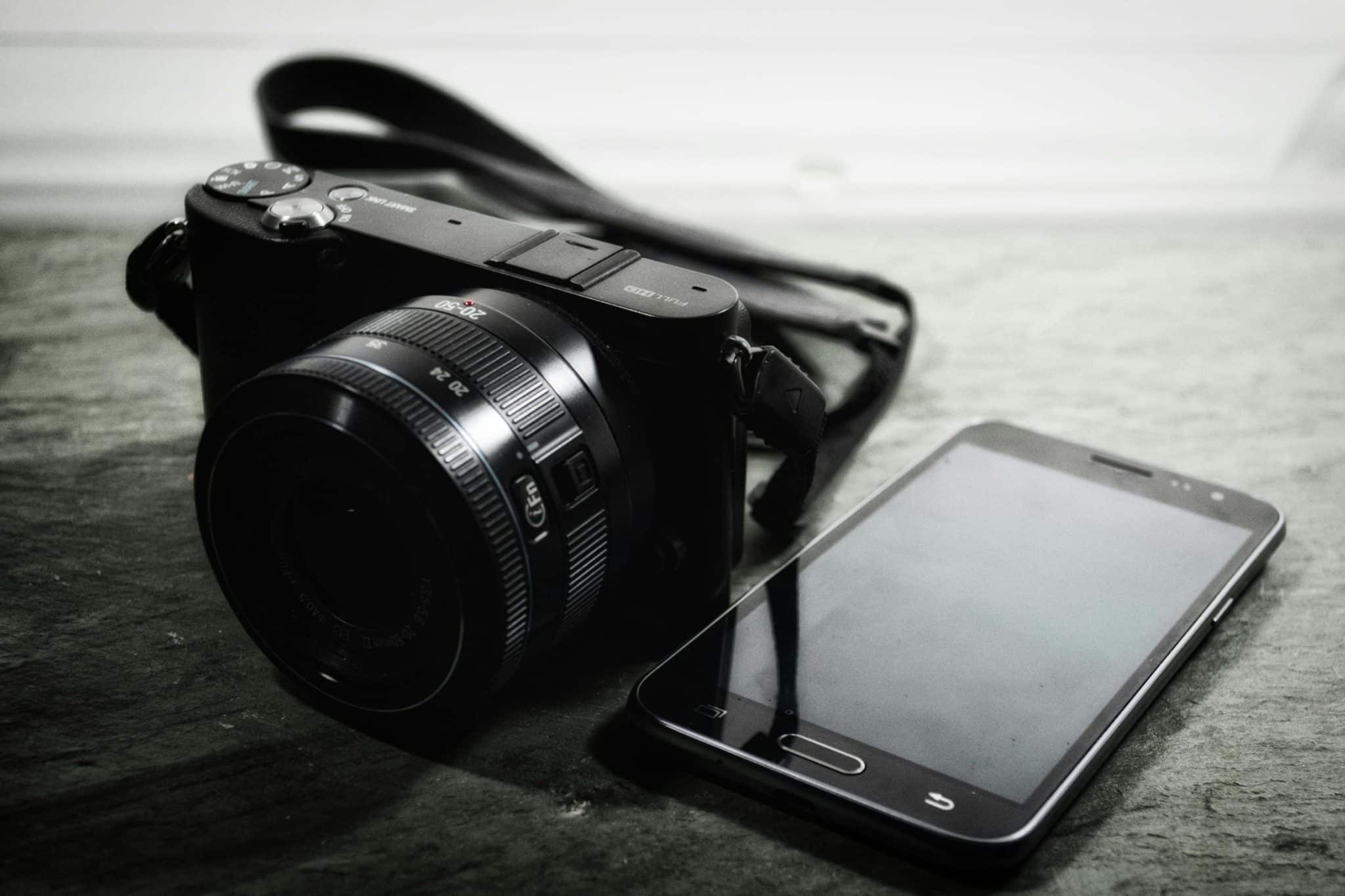Phone cameras versus conventional cameras.. With 28 Years Later, a full feature film starring Cillian Murphy being shot solely on an iPhone it begs the question – what now makes a good private investigator camera? Do private investigators and surveillance teams even need cameras now or are smart phones enough? I’m going to weigh in below.
When first setting up as a surveillance focused private investigator you purchase all the cool gadgets and toys like spy cameras and video cameras but now more and more evidence is being captured by investigators using their smart phones.
Why?
It is so damn easy. We can take a picture, put the time stamp on it with an app for evidential purposes and then share it to our client or command group instantly. This lets the operations lead add it into a report straight away meaning the process is streamlined.
On the flip coin if you’re using video cameras you have to download the footage, sift through it and then send a relevant picture which can be very time consuming. Not to mention you will need to purchase third party software to embed a timestamp onto the video. This is why lots of sub-contractors now working more in the corporate surveillance will deploy with just their smart phone as it can almost do everything whilst delivering better quality imagery.
The main con with a smart phone is the integrity of evidence handling as normal cameras save everything to an SD card whereas a smart phone stores it internally and usually in a cloud based system.

One of the main things a good camera can achieve is a great picture at night which is crucial for a private investigator.
Smart phones now are out performing some of the lower range cameras that cost in the region of £300 – £500! All whilst being something that you can carry in your pocket!
The ease to now not have to carry a bulky camera in order to get a good clear photograph in near darkness due to smart phones having excellent low light quality is a game changer in my eyes. On this topic, smart phones win.
The difference between good surveillance and brilliant surveillance is the level of intelligence you can gather. Getting a long distance photograph is achievable for almost anyone but getting in close and personal is where the best rise to the top.
For me, at present smart phones cannot compete with dedicated covert cameras like the Lawmate PV-900 smart phone camera which is purely built to be a spy camera hidden in plain sight.
Gaining covert imagery from a smart phone is very risky as people are now aware of their photo being taken. Let alone someone videoing a meeting in a restaurant for a pro-longed period of time. It’s not feasible from a smart phone.
On this one, dedicated covert cameras will always win for me.
For a lot of surveillance teams they use Sony handycams due to their adaptability and remote controls. Along with the ease of transferring the data to your smart phone for easy sharing.
That said, Sony and other handycam makers having appeared to have stopped producing the cameras altogether. For context on this the last release by Sony of a new handycam was back in July 2020 with their FDR-AX43 camera.
Why?
There is no point trying to compete against smart phone cameras now. Sony have seemingly increased their efforts with the A series which are incredible but not really for hobbyist film makers. For me, production of handycams that surveillance teams use daily is dying out which may turn surveillance crews to use their phones more and more.
For this topic, smart phones are going to be here to stay as I don’t think demand of handycams is there anymore and suppliers know it. Smart phones take this point.
The last point on the phone versus camera discussion for me is going to be evidence handling.
Nearly all conventional cameras and handycams record directly to a SD card or Micro SD card. These are then retained as evidence and not tampered with directly. Video’s are edited from the downloaded files but not changed or altered on the original SD card itself.
For phone camera imagery this integrity of evidence handling is much much harder as it records (with iPhones) directly to the phones internal storage where by it can be altered within and then shared.
I’ve not personally seen the use of phone imagery as evidence yet as a private investigator but the integrity of that evidence will be a massive tool to the opposition in a court battle where surveillance evidence has been captured on a smart phone.
This for me will always be the reason I will stick to conventional cameras and handycams as I will not risk my work being thrown out and not admissible in court.
I definitely feel smart phones have their place to assist in building an investigation however, for me at this stage, handycams and cameras will be the clear and out right choice for me when I take on a surveillance task as I need it to be court admissible.
One place smart phones will never compete will be to gain covert imagery as they cannot do that job without massive risk of compromise be it directly by a subject or a nosey on-looker. The other main factor is the evidence integrity, it is too simple and easy with external SD to maintain the integrity to ensure your evidence will be admissible.
As always, thanks for reading and I welcome you to share and make comments on my thoughts!
Thanks, Dan